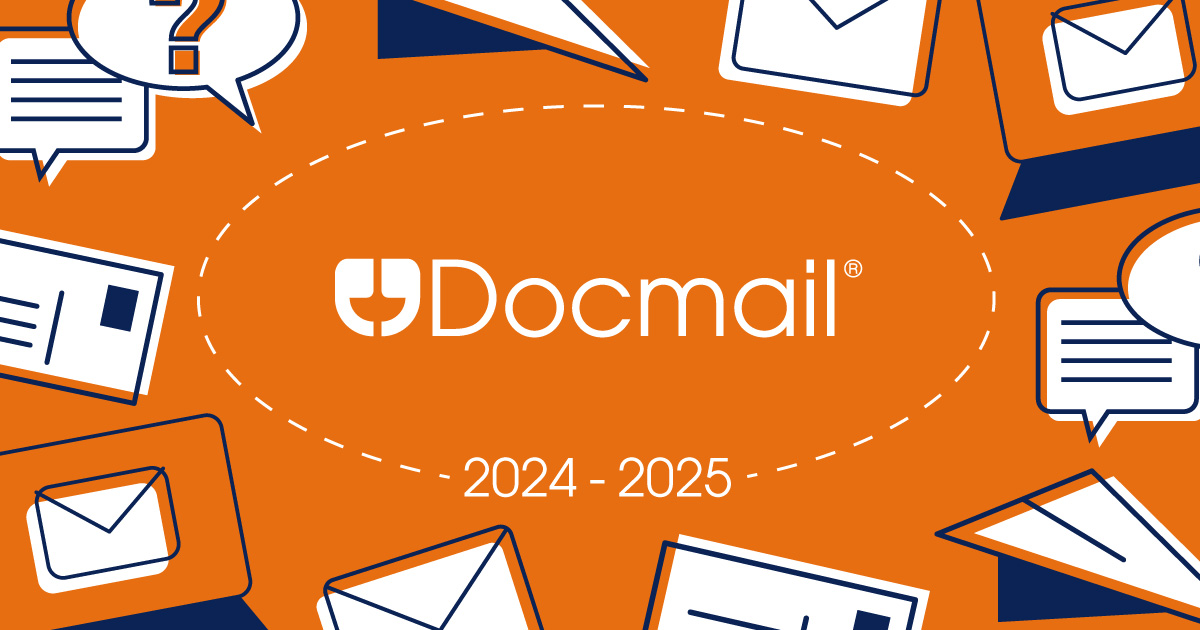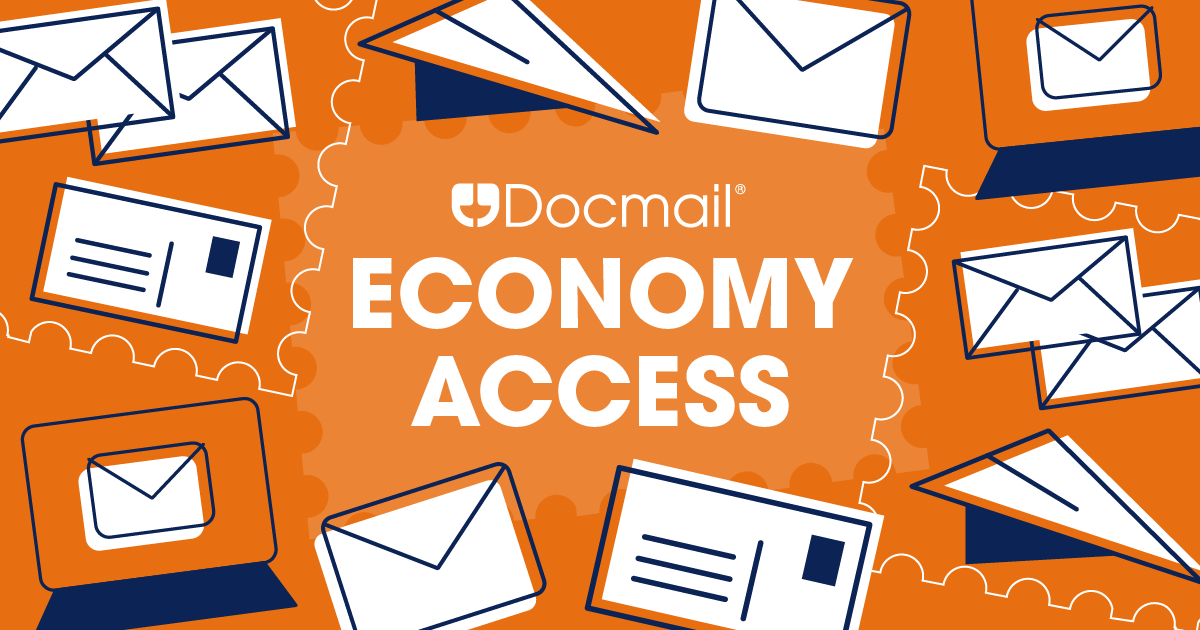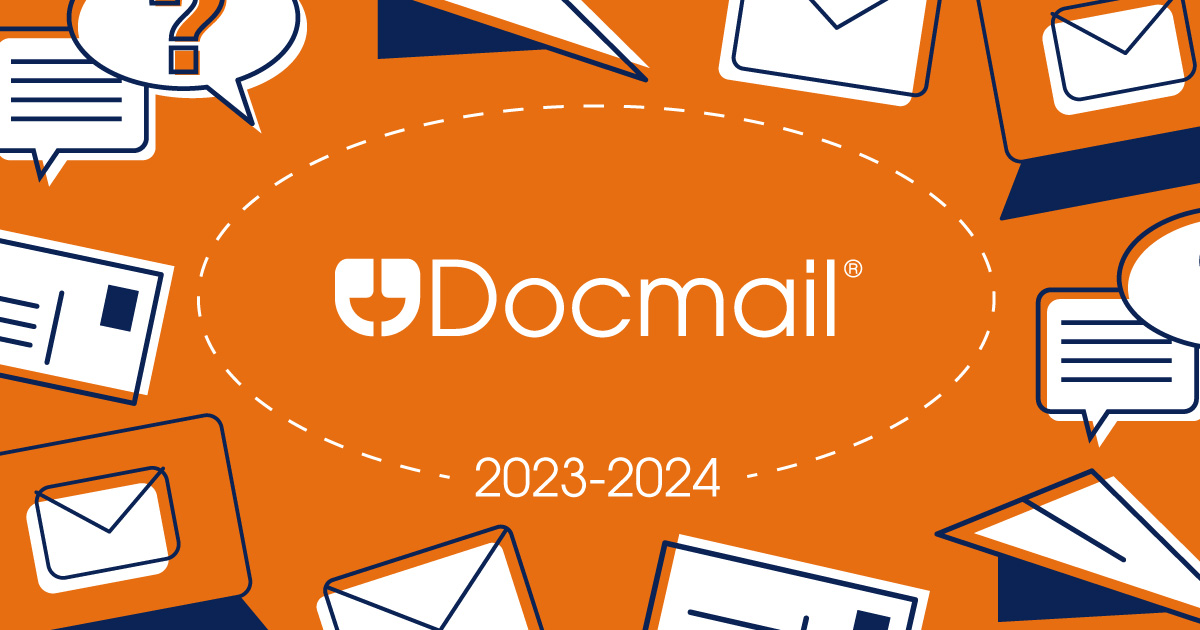Although at its very core the hybrid mail process is remarkably simple, various events over the years have shaped this convenient modern alternative to direct mail communication.
Join CFH as we explore the early foundations of mail and organised postal systems, the huge developments which took place during the internet era and the industry-shifting impact of the first true hybrid mail system released by us in 2008.
Before getting into the nitty gritty of the process and the transition from franking machines to convenient print and post, it’s important to define ‘hybrid mail’ – a term that can cause some confusion.
The most widely accepted interpretation of hybrid mail is that of a secure online process in which documents are produced, managed, and sent directly from a desktop or laptop, without the sender having to hand fulfil envelopes themselves or make any post office trips. As you’ll soon discover, hybrid mail took traditional postal methods and transformed them into a simple step-by-step online process, reliably overseen by third parties and easily managed remotely by individuals or entire teams.
Without traditional mail, there would of course be no hybrid mail to proceed it, so this is where we begin our journey.
Though the idea of mail communication with written documents dates back to the invention of writing, the first use of a postal system came much later around 2400 BCE. During this period, pharaohs used designated couriers to send out decrees across the state. Far removed from the premium quality paper stocks you’ll come across today, the first envelopes protecting these messages were made of cloth, animal skins and vegetables. A postage system was formalised in The United Kingdom some time later in 1635, at which point use of The Royal Mail service was first made available to the public by Charles I.
The advent of the internet set the tone for communications to take place online, with convenient file and information sharing paving the way for innovation.
Emails and instant messaging of course revolutionised the way in which people exchange information, with the very first email being sent in 1971 over ARPANET - the US government's first computer network. The widespread use of email systems didn’t occur until 1993 as AOL and Delphi connected their email systems to the internet two years after the web was made available to the public.
Though the popularity of email and online messaging would only grow, physical mail remains a staple system for personal and business communications. In fact 7.3 billion letters were delivered in the UK during the 2022/2023 financial year.
The first true hybrid mail system came to be in 2008, created and released to the public by CFH as a means to simplify the print and post process for anyone with remote mailing requirements. Fittingly named ‘Docmail’, the system could be accessed by anyone with a PC or laptop and reliable access to the internet.
Acting as a virtual print factory and a remote means to send mail to multiple addresses, the platform was a gamechanger for businesses across multiple sectors including Healthcare, Finance and Local Government, many of whom were reliant on franking machines and outdated postal equipment. The very first Docmail hybrid mail customer - Frome Medical Practice – had a requirement to send 2000 personalised flu vaccination letters, a task that was swiftly completed thanks to our easy-to-use system. They still work with us to this day.
The hybrid mail story certainly doesn’t end with the introduction of Docmail.
As technology and in-house processes evolve and improve, the systems customers have access to have developed too. Progress made over the years has included enhanced reporting, so those accessing online portals have clearer insights into the status of mailings and how they perform.
Away from web platforms, some hybrid mail providers have also developed virtual printer extensions, which allow users to send documents and letters directly from their desktop to the hybrid mail system. The Docmail print driver is a leading example of this, allowing users to set up pre-defined print options and have their mail output printed and posted on demand. API capabilities are another modern feature that seamlessly allows letters to be sent straight to our hybrid mail platform without any user intervention.
For those questioning the future of printed mail as a form of communication, changing circumstances over the last few years are evidence enough that print and post is here to stay.
The COVID-19 pandemic saw an uptake in the use of hybrid mail systems and the use of direct mail, as individuals and businesses were unable to communicate in-person or operate in the way they conventionally would. Without specific software to install, license fees to pay or long-term contracts to be tied into, hybrid mail was seen as an effective way to retain a consistent communication output. Long after the pandemic, many of these new users have continued to utilise hybrid mail, realising the value of an easy-to-use system which frees up staff time and cuts costs.
All in all, hybrid mail isn’t simply a ‘quick fix’ for businesses of all sizes, but a modern approach to communication that aligns with 21st century needs for digitalisation and sustainability. Particular demographics will always favour physical delivery, and in terms of retaining trust, mail will always lead the way.
The future is incredibly bright for hybrid mail, and Docmail will continue to push the envelope for hybrid communications - adding to the 220 million documents already sent via our innovative platform. Interested in learning more about our various solutions? Don’t hesitate to contact the team.


Structured Credit Communications For Leading Agri-Food Organisation
Surrey County Council Sought to Optimize Print/Post Services Across Departments. We Helped Transform Their Services With Our Industry Expertise.
The block management software providers at Blocks Online experienced considerable growth upon integrating a reliable mailing method and API connection.
Keen to adopt a more efficient way of printing, packing and posting their time-sensitive paper communications, High Mill has embraced the Docmail Print Driver.
Simplified Patient Communication For Lung Health Check Programme





Fife-based Electricity Asset Services, specializing in electrical and civil engineering, employs CFH's Docmail system for improved communication with Scottish Power and staff.















